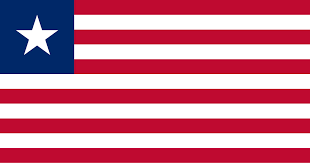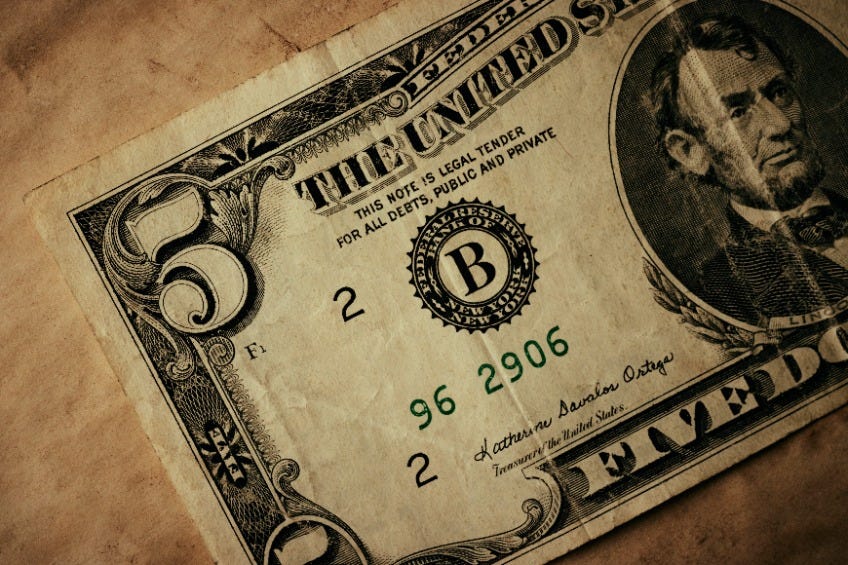The Choice: The History of Liberia
Why it is important to know the African Countries
Issue #888 The Choice, Friday, July 11, 2025
As many of you know, the #ConvictedFelon embarrassed America yet again last week when he met with several African leaders, including the president of Liberia. By thinking he was complimenting the Liberian president’s command of English, Trump demonstrated that he lacks even basic knowledge about Liberia, including the fact that English is the country's official language.
The “TACO” president also lacks a qualified staff member to prepare a brief on Liberia for Trump to review before the meeting; not that Trump reads anything important, anyway.
Liberia was founded in 1822 and is Africa's first and oldest modern republic. Its establishment was spearheaded by the American Colonization Society (ACS), an organization composed of both abolitionists and slaveholders with the controversial aim of relocating free African Americans to Africa. This initiative was meant to address what many at the time considered the "problem" of a growing population of free Blacks in the United States.
In 1847, Liberia declared its independence, becoming the first African republic to proclaim itself free from colonial rule. The nation's capital, Monrovia, was named after U.S. President James Monroe.
The first settlers, known as Americo-Liberians, established a republic modeled after the United States, with Joseph Jenkins Roberts becoming the first president. Early economic activities included agriculture, trade, and later, the development of rubber plantations by Firestone, which had a significant impact on the country's economy.
During Liberia’s history, the country faced numerous external pressures from colonial powers and internal challenges stemming from the cultural and social dynamics between indigenous populations and the Americo-Liberians, descendants of those who migrated from the United States.
Liberia was a founding member of both the League of Nations and the United Nations, playing a pivotal role in international politics that underscored African participation on the world stage.
Liberia's more recent history includes a period of civil unrest and conflict from 1989 to 2003. Efforts in peace-building and reconciliation characterized the aftermath of these conflicts. In 2005, Ellen Johnson Sirleaf was elected as Africa's first elected female head of state.
Ellen Johnson Sirleaf was awarded the Nobel Peace Prize in 2011 for her non-violent efforts to promote peace and her struggle for women's rights.
Our Choice
Making sure that learning about Liberia—and African nations more broadly—fosters a more nuanced understanding of global history, acknowledging the contributions and experiences of African peoples that have often been marginalized or misrepresented.
Moreover, understanding African countries like Liberia challenges stereotypes and simplistic narratives that still persist today, with people like Trump. It underscores the continent's diversity, the dynamism of its people, and the complexity of its histories—elements that are crucial for fostering mutual respect and global cooperation.
If you like us, REALLY like us, please click the little heart “Like” button at the top of this post!
Buttons:
Heart: Like Bubble: Comment Arrow Up: Share Arrows Circle: Restack
If you like us, REALLY like us, please click the “Like” button at the top of this post!
Your “Likes” mean a LOT to us! We appreciate your support!
Buy Pam a cup of Colombian Coffee!
Engage with us and our posts on Substack Notes, where we publish new content almost daily.
Our July 2025 subscriber goals are 400 new free subscribers and 80 new paid subscribers! You can help us reach our goal!
We Are Speaking is a reader-supported publication. To receive new posts and support our work, consider becoming a free or paid subscriber.
Follow Pam on Bluesky, the best “X” alternative.
Follow Keith on Bluesky, the best “X alternative.
Independent Authors and Creative Professionals: Check out my valuable books and courses on Branding and Marketing just for you via Pam Speaks 2 You.








During her junior or senior year, my daughter will take a history class at her high school about African history.